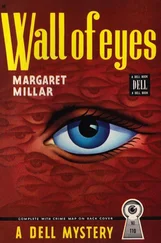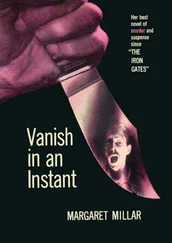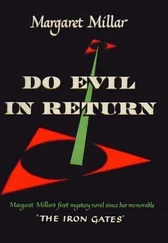“Yes.”
“So how are you? Do you like living in Santa Felicia?”
“I respectfully refuse to answer on advice of counsel.”
“Any complaints about the way you’ve been treated in jail?”
“I respectfully refuse to answer on advice of counsel.”
“Did you know that Richie Arnold has told the police everything? Why don’t you come clean and make it easier on yourself?”
“I respectfully refuse to answer on advice of counsel.”
The regular night guard came to the cell door, accompanied by a young deputy who looked new and nervous. His voice even cracked a little like an adolescent boy’s:
“Mr. O’Donnell?”
“Donnelly.”
“Sorry, sir. Mr. O’Donnelly, His Honor Judge Hazeltine has been notified of your presence in this holding facility and has indicated a desire to see you in the hearing room at your earliest convenience.”
The guard laughed and said, “That’s police academy talk meaning ‘Move it.’ Cute, isn’t it?”
The hearing room was a small area of the jail set aside for special psychiatric or juvenile hearings that weren’t suitable for open court. The air-conditioning had been shut off for the night in the interests of economy, and the place smelled of people under stress and of something more identifiable: mildew. It was coming from a canvas bag placed on the table that occupied center stage. Beside the bag was a green leather case stained with oil and brine and a gray-green mold. Only the double steel lock was unmarked by the passage of time and tides.
There were a dozen or so straight-backed wooden chairs occupied by District Attorney Owen and his chief investigator, Leo Bernstein, Judge Hazeltine and Gunther. With the arrival of Donnelly the judge rose and took his place behind the desk. In spite of the hour, he was bright-eyed and lively as if the unusual turn of events had piqued his interest. His voice was sharp.
“This unorthodox meeting has been called in order to be fair to both prosecution and defense. The green leather case on the desk in front of me has been given a great deal of attention during the course of the trial. Therefore, it seemed important to me to preserve it as found instead of trying to break the lock or otherwise forcibly open it. No skilled locksmith is available at this hour, so I am suggesting that we postpone the opening of the case until court convenes tomorrow morning. Is this agreeable to both counsel?”
Donnelly shook his head. “Under the discovery rule I have a right to see all evidence against my client before it is produced in court.”
“The discovery rule does not apply since the case has not been offered in evidence by the prosecution. Indeed, nobody knows at this time whether the contents will favor prosecution or defense. Have you any questions?”
“Yes, sir,” Donnelly said. “Where was the case found?”
“On the person of Richie Arnold.”
“Where did he find it?”
“Obviously somewhere on the boat.”
“Impossible,” Owen said. “My men searched every inch of that boat from stem to stern.”
“Apparently they missed a few inches between,” the judge said. “Now, what’s happened tonight, or rather this morning, leaves us in something of a dilemma. I was immediately informed of the development because of its legal implications. Here we have a juvenile caught stealing an object from a boat. Since juveniles are not allowed out on bail, they are either held in juvenile hall or released to their families, depending on the seriousness of the crime. Under ordinary circumstances Richie would be with his father right now. But the circumstances are not ordinary. First, he is a witness in a murder trial, and second, the motive for that murder might be sitting on the desk in front of me. So we’re not faced with a kid caught stealing hubcaps but a prosecution witness stealing material evidence and thus obstructing justice.”
“That would depend,” Donnelly said, “on whether or not he knew what he was stealing.”
“He must have known or he wouldn’t have stolen it.”
“How could he? He was not in the courtroom to hear the testimony of previous witnesses or subsequent witnesses. His father, who preceded him on the stand, was admonished like all other witnesses not to discuss the case or his testimony with anyone else.”
“It was in the newspapers and on television and radio.”
“Has he stated that he was aware of the contents of this case?”
“No,” the judge said. “In fact, he hasn’t stated anything except that he wants a lawyer and a hamburger. The hamburger part’s easy; the lawyer part isn’t. He wants you, Mr. Donnelly. I don’t know exactly what this means. Perhaps you have a theory?”
“No. However, it occurs to me that as a stranger in town he simply doesn’t know the name of any other lawyer.”
It was glib and plausible. The judge didn’t buy it, but he had nothing to offer in its place. His knowledge of Richie was too sketchy to enable him to estimate the degree of the boy’s sophistication. How many times had he been around the block and what had he picked up along the way?
He addressed the district attorney. “Has Richie Arnold ever been arrested for stealing?”
“I’m unaware of any kind of juvenile record on him.”
“Are you unaware because he didn’t have one or because you didn’t seek that information?”
“It hardly seemed necessary. He’s merely a secondary witness.”
“It seems necessary to me. Has the kid ever been caught stealing, and if so, what? Hubcaps or jewelry? Videotapes or Cadillacs?”
“I guess we’ll just have to ask him,” Owen said. “Where is he?”
“In an individual holding cell, presumably eating a hamburger.”
“Perhaps he could be brought to this room and questioned right here and now. He might be more willing to answer in this more informal atmosphere. I have three sons of my own, and I know how important it is to have the right atmosphere, the right tone.”
Nobody in the room was impressed. The Owen boys were becoming well known in courtroom circles.
“Richie Arnold has clearly indicated his unwillingness to provide any answers,” the judge said. “Questioning him here, informal atmosphere and tone notwithstanding, would be an infringement on his rights. I suggest we all go home and finish this night in a more conventional manner. We’ll meet in court in the morning. Is this agreeable to you, gentlemen? Mr. Owen? Mr. Donnelly? Mr. Gunther, you spoke?”
Gunther sat up straight in his chair, and one of the loose wooden rungs squeaked, making an oddly human sound of protest.
“Mr. Gunther, do you wish to make a statement against my proposal?”
“Oh, no, sir. I find it very agreeable, very, very agreeable.”
“That’s a few too many ‘verys.’ Three, to be precise. A person may agree or disagree. Variations cannot properly be expressed by a modifying adverb like ‘very.’ ”
“Sorry, sir.”
“I’ll see you tomorrow, gentlemen.”
Donnelly waited for Judge Hazeltine in the parking lot. The judge came toward his car, whistling. It was an odd sound at that time and place, like a bird singing at night.
“May I have a word with you, Your Honor?”
“Go ahead.”
“If a public defender has to be appointed for Richie, it might mean considerable delay until one of the PD men is available. They work on a pretty tight schedule. I am offering to pay for an attorney for Richie — anonymously, of course — solely for the purpose of expediting matters and getting this whole thing over with.”
“Is that another of your do-gooder deeds, Mr. Donnelly?”
“The good is for me, nobody else. I want to leave town as soon as possible.”
The judge’s eyebrows made an inquiry, but he didn’t say anything.
Читать дальше
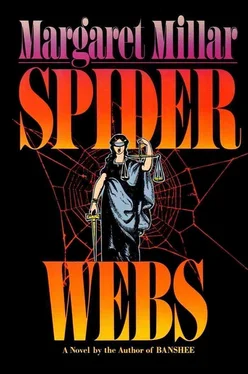

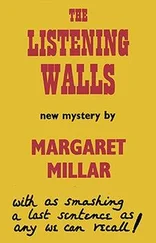
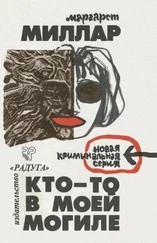
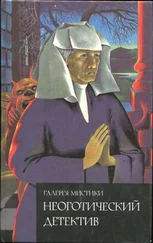
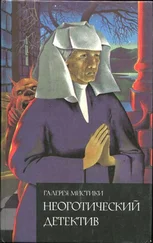

![Маргарет Миллар - Rose's Last Summer [= The Lively Corpse]](/books/384369/margaret-millar-rose-s-last-summer-the-lively-c-thumb.webp)
